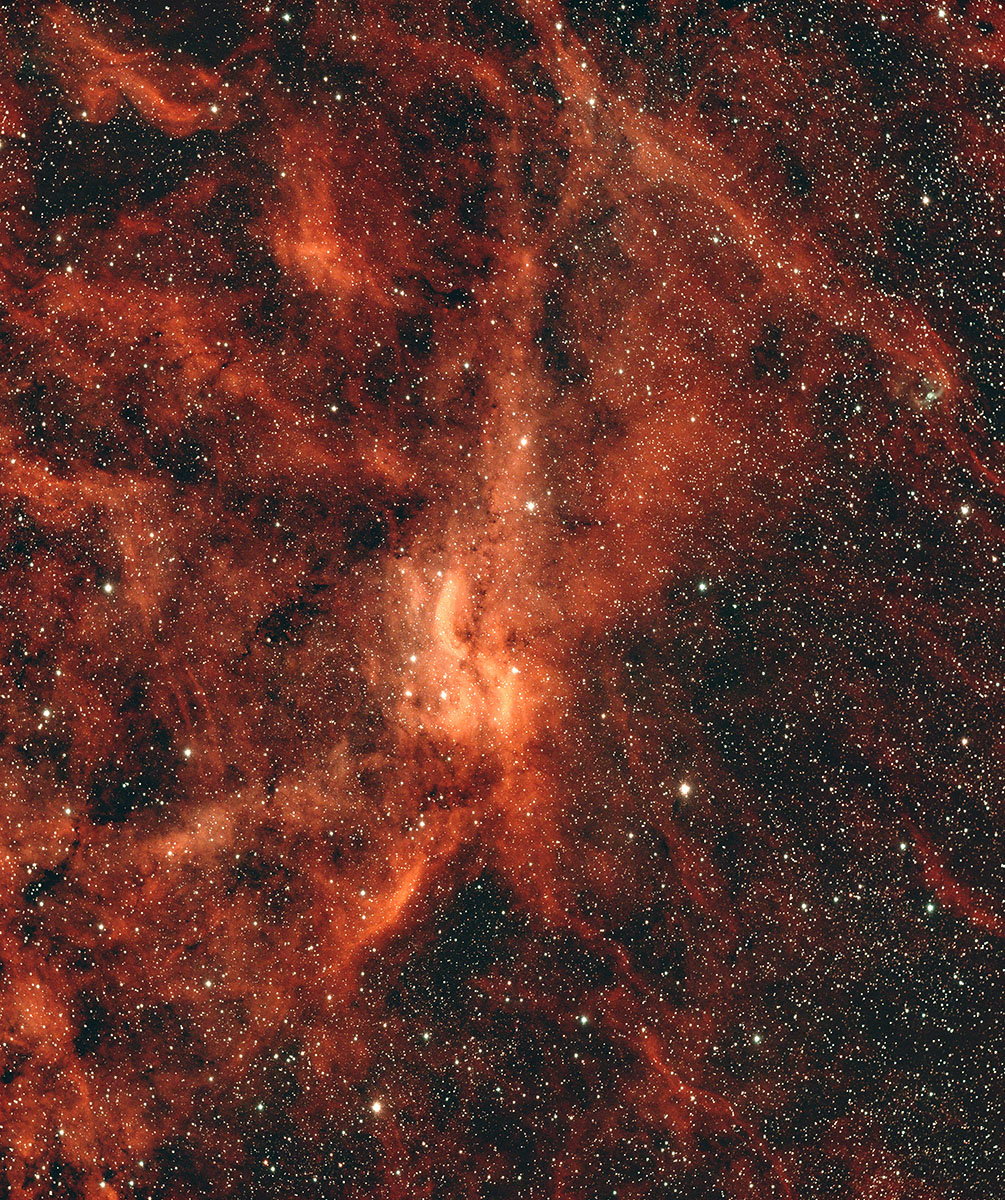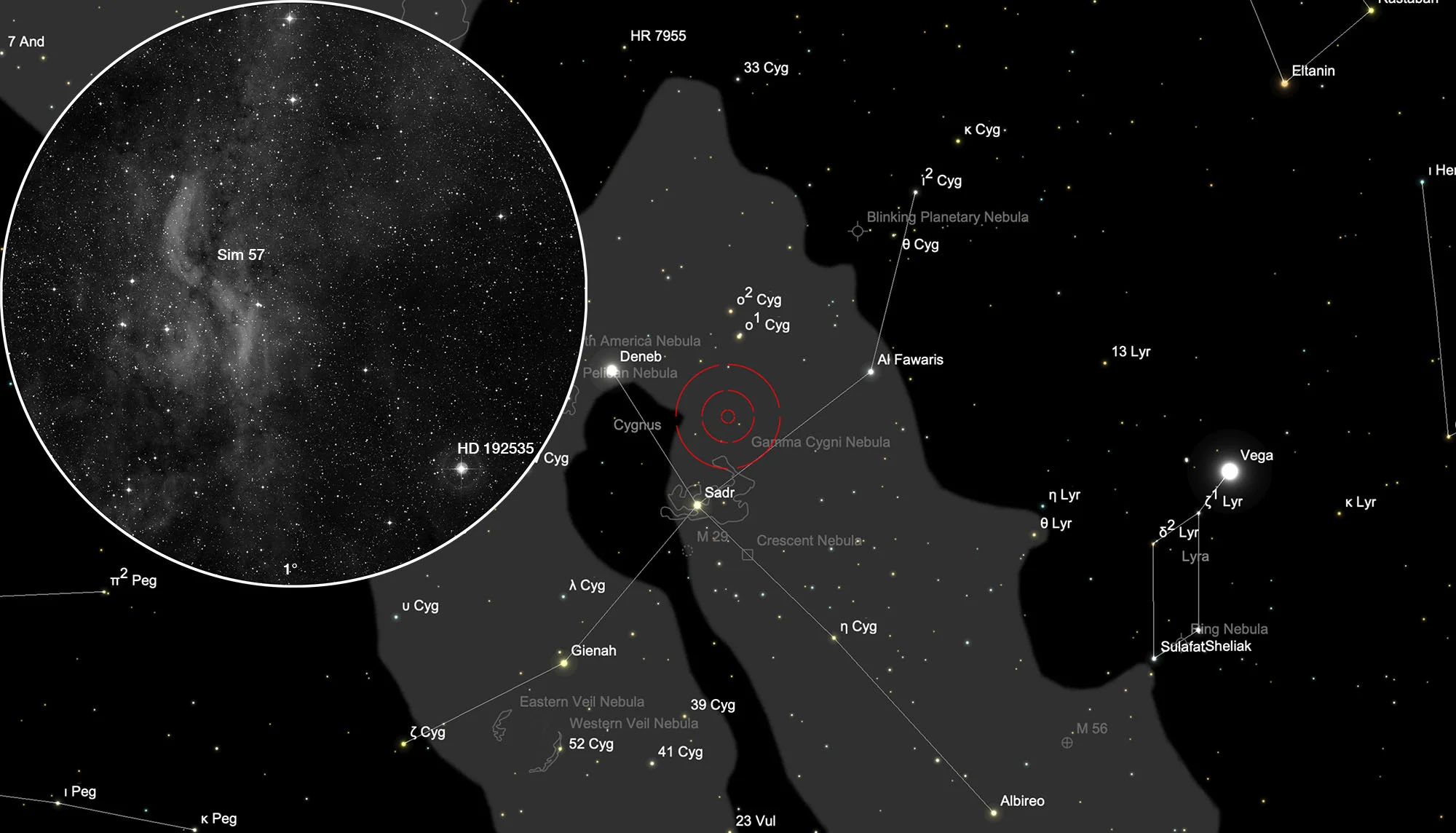Propeller Nebula (Simeis 57)

History
The emission nebula Simeis 57 (Sim 57, HS 191, GAL 80.3+4.8) was discovered in the early 1950s by the Russian astronomers Grigory Abramovich Shajn and Vera Fedorovna Gaze at the Simeis Observatory on the Crimean Peninsula. [402] In 1969, Dickel, Wendker and Bieritz published a catalogue of optically visible H-II nebulae of the western half of the Cygnus X region. Simeis 57 received three identifications here: DWB 111 for the southwestern propeller wing, DWB 119 for the northeastern propeller wing and DWB 118 for the nebula around it. [513]
Physical Properties
Simeis 57 (also called Simeis 57) is a high surface-brightness nebula and the most prominent feature of the large H-II nebulae of the Cygnus X region. It is located near the edge of a large (18° × 13°) X-ray structure known as the Cygnus superbubble, but none of the large-scale X-ray or radio continuum maps show anything remarkable concerning its position. At optical and at radio wavelengths, Simeis 57 has a peculiar «S» shape, crossed by long, thin and straight filaments. The nebula belongs to the Orion (Local) Arm of our galaxy. The relatively high Galactic latitude of +4.7° and the large angular extent (∼20 arc minutes) suggest, however, that it is not very distant. The accurate distance was long unknown as no luminous stars are embedded in these molecular clouds, nor are any obscured by them and no sufficiently luminous stars could be found in the immediate vicinity of the nebula. Instead, all available data points to the evolved star HD 193793 = WR 140 (an O4-5 supergiant and WC7 Wolf–Rayet binary) as the source of excitation, notwithstanding its large separation of 50 arc minutes, about 25 pc at the stellar distance of 1.7 kpc. Simeis 57 appears to be a part of a larger structure surrounding the HI void centred on HD 193793. [514, 515]
Finder Chart
The Propeller Nebula is located in the constellation Cygnus, about three and a half degrees north of the star Sadr (γ Cygni). The 6.1 mag bright star HD 192535 can serve as an orientation guide. From there a little more than half a degree to the northeast to the prominent small asterism of 8th magnitude, some of which are double stars. On 25 July it is in opposition to the Sun and culminates at local midnight. The best observation time is March to December.
